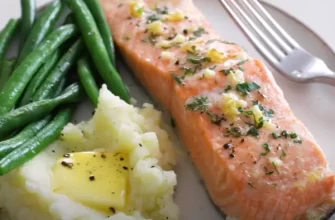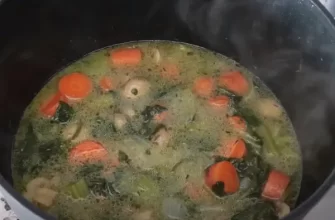Looking for a simple and inexpensive way to shed some pounds? The bread and water diet might catch your attention. This is a diet that focuses on consuming mainly bread and water for a specified period. While it may sound straightforward, it’s important to understand the potential benefits, disadvantages, and real-life case studies before diving in.
Benefits of the Bread and Water Diet
The bread and water diet has gained popularity as a simple and cost-effective approach to weight loss. While it may sound extreme, many people have experienced positive results. Let’s take a closer look at the benefits of this diet plan.
1. Weight loss
One of the main reasons people try the bread and water diet is for weight loss. By restricting food intake to only bread and water, you significantly reduce calorie intake, which can lead to weight loss. However, it is essential to note that this is a short-term solution and should not be followed for an extended period.
2. Simplicity and cost-effectiveness
The bread and water diet is incredibly simple and cost-effective. You do not need complicated meal plans or expensive ingredients. All you need is a loaf of bread and water. This simplicity makes it accessible to anyone looking to lose weight without breaking the bank.
3. Improved digestion
Eating a simple diet of bread and water can help improve digestion. Bread contains fiber, which aids in digestion and promotes regular bowel movements. By eliminating complex and heavy meals, you give your digestive system a break and may experience relief from digestive issues such as bloating and constipation.
Although there are advantages to the bread and water diet, it is important to recognize the possible drawbacks. This diet does not provide necessary nutrients such as proteins, vitamins, and minerals. If followed for a long time, it can result in deficiencies of essential nutrients, tiredness, and muscle depletion. It is recommended to seek advice from a healthcare expert before starting this diet regimen.
In conclusion, the bread and water diet can be an effective short-term weight loss solution, primarily due to its simplicity and the reduced calorie intake. However, it is important to approach it with caution and ensure that you incorporate a variety of nutritious foods into your diet for long-term health and well-being.
Disadvantages of the Bread and Water Diet
1. Nutritional deficiencies
While the bread and water diet may lead to short-term weight loss, it is important to note that it is highly restrictive and lacks essential nutrients. By only consuming bread and water, you are depriving your body of vital vitamins, minerals, and macronutrients that are necessary for maintaining good health. This can lead to nutritional deficiencies and potential health problems in the long run.
2. Lack of variety
Following a bread and water diet means drastically limiting your food choices. This can lead to boredom and make it difficult to stick to the diet in the long term. Additionally, a lack of variety in your diet can make it challenging to get all the necessary nutrients your body needs for optimal functioning.
3. Unsustainability
The bread and water diet is not a sustainable long-term solution for weight loss or overall health. It is a highly restrictive and unbalanced diet that may result in yo-yo dieting and unhealthy relationships with food. Once you resume your regular eating habits, you may regain the weight you lost and potentially even more, leading to a cycle of weight loss and gain.
While the bread and water diet may offer short-term results, it is important to consider the potential disadvantages and long-term consequences. It is always recommended to seek guidance from a healthcare professional or a registered dietitian before starting any new diet plan. They can provide personalized advice and ensure that you are meeting your nutritional needs while aiming for a healthy and sustainable weight loss journey.
Results and Case Studies of the Bread and Water Diet
1. Success stories and personal experiences
Many individuals have reported positive outcomes from following the Bread and Water Diet. They claim to have experienced weight loss, improved digestion, increased energy levels, and reduced inflammation. Supporters of this diet believe that by limiting their food choices to just bread and water, they are able to control their calorie intake and reset their eating habits.
One such success story is Sarah, a 35-year-old woman who struggled with weight loss for years. She decided to try the Bread and Water Diet as a last resort and was amazed at the results. Over a period of three months, she lost 20 pounds and felt more energized than ever before. Sarah also mentioned that this diet reset her relationship with food and made her more mindful of her eating habits.
2. Medical opinions and criticisms
While some people have reported positive results, it is important to note that the Bread and Water Diet has its fair share of critics. Medical professionals and nutritionists argue that this diet lacks essential nutrients, vitamins, and minerals needed for a healthy body. They warn that restricting food choices to just bread and water can result in nutrient deficiencies and may negatively impact overall health.
In addition, critics point out that the weight loss experienced on this diet is often temporary and unsustainable. Once individuals return to their regular eating habits, the lost weight tends to be gained back.
It is always advisable to consult with a healthcare professional or registered dietitian before embarking on any extreme or restrictive diet. They can provide personalized guidance and ensure that your nutritional needs are met while achieving your desired weight loss goals.
Conclusion
The Bread and Water Diet is a simple and affordable weight-loss approach that involves consuming only bread and water. While it may seem appealing due to its simplicity, it’s important to consider the benefits, disadvantages, and results before embarking on this diet.
Benefits:
- Simplicity and Affordability: The Bread and Water Diet requires minimal planning and is cost-effective compared to other diet plans.
- Calorie Restriction: By limiting your diet to bread and water, you’ll naturally consume fewer calories, potentially leading to weight loss.
- Potential Short-Term Results: Some individuals may experience quick initial weight loss on the Bread and Water Diet, providing immediate gratification.
Disadvantages:
- Nutritional Deficiencies: Relying solely on bread and water can result in inadequate intake of essential nutrients, such as proteins, vitamins, and minerals.
- Limited Variety: Following a monotonous diet can lead to boredom, making it challenging to stick with the Bread and Water Diet long-term.
- Potential Risks: Extreme calorie restriction may lead to fatigue, weakness, and nutrient imbalances, potentially impacting overall health.
Results/Cases:
While there have been anecdotal reports of weight loss on the Bread and Water Diet, there’s a lack of scientific evidence to support its long-term effectiveness. Additionally, any initial weight loss may be temporary once normal eating resumes.
It’s crucial to consult with a healthcare professional or registered dietitian before starting any restrictive diet like the Bread and Water Diet. They can provide personalized guidance based on your specific health goals and needs, ensuring a safe and balanced approach to weight loss.










You’ve been on a “bread-and-water” diet for 3 weeks and have actually discovered that cut on your shin won’t recover and bleeds quickly. Bleeding conditions might be triggered by:
— a low red blood cell count
— a vitamin K shortage
— side effects from certain medications
You are possibly experiencing the effects of poor nutrition. You are not getting adequate protein, iron and vitamin K from bread only.
If you are on a diet including bread and water that nearly has no fruits and vegetables, are you going to live a brief life? Response is: definitely! The nutrients you obtain from fruits and veggies are very, very crucial for bodily functions. Not just would you feel very sluggish with very little energy, but constipation would definitely set in! However … it is only statistics …
You will find a lot of positive reviews about the diet on black bread and water, but it is quite tough, and the maximum period for which you can sit on it is 5 days. If you have never previously restricted yourself in nutrition and are not sure that you can hold out, then 2-3 days will be enough.
A diet of black bread and water helped me. After a couple of days, I noticed that the jeans that were previously tight were noticeably looser.
And after completing a full five-day course, I just didn’t recognize myself! The belly and sides were gone, as if they had never been there.
By the way, the weight after such a diet does not increase for a year.
I am very fond of bread, and this diet is more of a pleasure for me than a restriction. This is not the first time I have practiced it, and every time the effect is amazing.
The body becomes slender, there is lightness and grace…